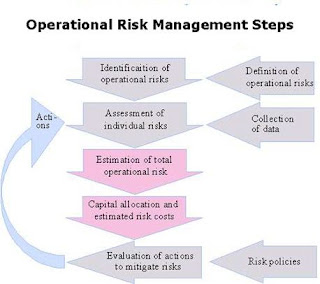
Let's begin with the basics for the Operational Risk Management & Best Practices:
Introduction to Operational Risk Management in trading and investment scenario:
- Using Derivatives Versus Trading the Underlying Asset/Security/Commodity
Drivers And Design of Operational Risk Management Steps:
- Recognize the requirements for operational risk in your company/organization
- Build upon an operational risk framework & Optimize its design
- The key elements of an operational risk management framework
- Planning the implementation or enhancement of an operational risk framework
- Track the progress as it is recursive in nature
Training, Marketing And Culture Change for Operational Risk Management:
- Need for an effective Operational Risk Management training program
- Whether to launch a Operational Risk Management plan
- Effects and requirements for culture change
- Making and Winning over partners: Audit, SOX, Compliance etc.
Risk And Control in Operational Risk Management :
- Advantages and Disadvantages of different styles of RCS
- Plans for RCS implementation and its maintenance
- Setting standards and procedures for RCS
- Setting scope and content of RCS
Key Risk Indicators (KRIs) within Operational Risk Management:
- Types of KRIs
- How to collect the KRIs which are relevant to your organization's Operational Risk Management
- Identify the root cause or Sources of KRIs
Importance of Reporting in Operational Risk Management:
- The need of Answering the "So What?" questions
- Effective loss data reporting
- Effective RCSA reporting
- Effective KRI reporting
- Effective operational risk reporting
Selecting the right IT or Technology Tools :
- Build or Buy Decision
- The RFP process
- What to ask in a demo
- Assessing how a technology tool might fit your needs
No comments:
Post a Comment